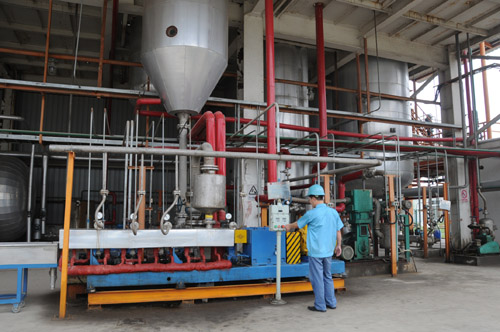Essential Guide to Synthetic Polymers & Resins for Industries
Synthetic polymers and resins play a critical role across diverse industrial sectors. Their versatile properties make them essential in applications ranging from automotive to construction. In this essential guide, we will explore the various industries that rely on synthetic polymers and resins while highlighting their significance as a vital resource for manufacturers and suppliers.
For more information, please visit Synthetic Polymers & Resins For Wide Industry Supplier.
Understanding Synthetic Polymers and Resins
Synthetic polymers are large molecules made from repeating structural units, usually connected by covalent chemical bonds. Common examples include plastics, elastomers, and fibers. Resins, on the other hand, are viscous substances used in producing plastics or as adhesives, coatings, and sealants. The performance characteristics of synthetic polymers and resins — such as durability, flexibility, and resistance to moisture, chemicals, and heat — have made them indispensable in modern manufacturing.
Applications Across Industries
Automotive Industry
The automotive sector is a major consumer of synthetic polymers and resins. They are utilized in various components, including dashboards, bumpers, and interior trims. The lightweight nature of these materials aids in improving fuel efficiency and reducing emissions, making them an essential resource for automotive manufacturers. Furthermore, synthetic polymers enhance safety through energy absorption in collision situations.
Construction Industry
In the construction industry, synthetic polymers and resins contribute to advancements in materials that make buildings more sustainable and energy-efficient. These materials are used in insulation, coatings, and adhesives. For instance, epoxy and polyurethane resins are commonly employed in flooring systems to enhance durability and resistance to chemicals and abrasion. The use of synthetic polymers helps in extending the lifespan of structures, thus reducing maintenance costs.
Explore more:Powdered Iron Oxide vs. Pigment: Which Is Truly Superior?
Exploring Kaolin: The Secret to Paper-Making Success
Why Is Nano Calcium Carbonate the Future?
High Gloss Barium Sulfate: Benefits for Paint & Coating Products
Say Goodbye to Noise: Discover the High Range Soundless Cracking Agent You’ve Been Missing!
How Custom Developer Solutions Enhance Solar Cell Efficiency
What to Avoid When Taking Norfloxacin?
Consumer Goods and Packaging
The packaging industry is another significant area where synthetic polymers and resins are extensively utilized. These materials provide an effective barrier against moisture, oxygen, and UV light, which helps in preserving food and preventing spoilage. Biodegradable plastics, a subset of synthetic polymers, are gaining traction in environmentally conscious packaging solutions. As consumers demand more sustainable options, suppliers of synthetic polymers and resins are innovating to meet these needs.
Electronics and Electricals
The electronics sector also relies heavily on synthetic polymers and resins for manufacturing components such as circuit boards and casings. Their insulating properties make them suitable for protecting sensitive electronic components and ensuring safety during operation. As technology advances, the demand for specialized synthetic polymers & resins for wide industry suppliers in the electronics field continues to grow.
Healthcare and Medical Devices
In the healthcare industry, synthetic polymers and resins are vital in producing medical devices, diagnostic equipment, and drug delivery systems. Their biocompatibility and sterility are crucial for applications in surgical implants and disposable medical products. The ongoing development of advanced materials is leading to innovations that enhance patient care and treatment outcomes.
Conclusion
The significance of synthetic polymers and resins across various industries cannot be overstated. As sectors like automotive, construction, consumer goods, electronics, and healthcare continue to evolve, the demand for these materials will only increase. Companies looking to remain competitive need to partner with reliable synthetic polymers & resins for wide industry suppliers who can provide innovative, high-quality materials tailored to specific applications. Embracing these advancements will ensure that industries can meet the challenges of tomorrow while enhancing performance and sustainability.
If you want to learn more, please visit our website Barrier Coatings for Pulp Molded Tableware.
Explore more:How Calcium Formate Enhances Cement Stability: Key Benefits Explained
How Does Calcium Formate for Agricultural Applications Benefit Crops?
Effective PAM Solutions for Clean Water Purification
Calcium Formate vs. Calcium Carbonate: Which Is More Effective?
Carbide Acetylene vs Calcium Carbide: What's the Difference and Which One Matters Today?
Why Are Tin Catalysts Essential for Sustainable Chemistry?
Technical Performance of PCE Powder Polycarboxylate Superplasticizer




